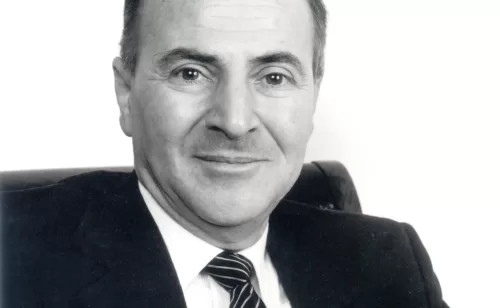Did you know that ‘focused listening’ is essential when you’re learning a foreign language?
Much of the listening we do in everyday life is unfocused. We are often doing something else, while the radio (or our nearest and dearest!) drones on. We might be driving, changing a light bulb, cooking a meal or doing anything under the sun, while we listen with half an ear to what is essentially background noise. Our inner thoughts frequently take over and we exclude the sounds coming in our direction. Our listening is passive . We just pick up bits of meaning here and there.
Alternatively, our listening might be highly focused when we’re engaged in a business discussion, an interesting conversation, or when we’re engrossed in a play or film. Our listening is active. We try to absorb the whole meaning of what we hear.
If we want to speak a foreign language, understanding the spoken word (listening comprehension) is our highest priority, so unfocused listening is a complete waste of time. In a classroom situation, when the teacher says ‘listen to this story’, our minds are likely to wander very quickly as our private thoughts cut out the teacher’s voice. The teacher can prevent this from happening only by making sure our listening is focused.
Focused listening can take place only when we are given a ‘listening objective’. Instead of saying ‘listen to this’, the teacher might say, for example, ‘I’m going to read you a story about an accident. After I’ve read it, I want you to tell me how the accident happened.’ You can be sure we’ll listen this time, because our attention is focused on a particular objective. Anyway, we don’t want to be caught out by the teacher and made to look foolish in class if the moving finger points in our direction!
In DirectEnglish ,there are always two important steps in the Companion before we view each new episode of the video. First, there is a brief explanation of the situation with background information, so we don’t waste time guessing what is going on. Second, we are given a ‘listening objective’, in the form of a question, to focus our attention.
Here, for example, is what happens in Unit 1, Lesson 1:
Situation: Tony Quercio and Barbara Seaton are at the reception desk of the Sheraton Hotel Boston. Tony is checking in.
Question: Have Tony and Barbara ever met before? How do you know?
Or Unit 8, Lesson 3 (and the entire course):
Situation : Mr. Jeff Davis, a hotel guest, has a problem, which he wants to discuss with the hotel housekeeper, Nu La.
Question : What is Mr. Davis’s problem?
We have to find the answers to these questions as we watch the video and this means that our listening will be highly focused. It also means that we are constantly trained to listen to new language delivered at normal speed, so with practice, we’ll be able to understand the new sounds of English and to ‘join in’ when we’re having a conversation.
We can rely on Direct English to train us to understand, but only if we use the method it provides. Always look up the Companion before you watch the video!

